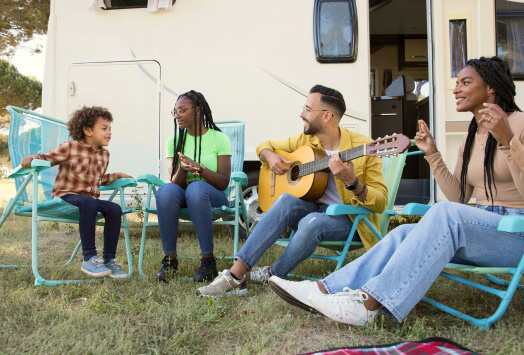You’ve seen the dances. You probably know who Ninja is. Maybe you’ve even played it yourself. Fortnite is a cultural sensation, and people are obsessed — but is the video game good for kids? According to the experts, there isn’t much to worry about, and there are even some valuable benefits to playing Fortnite for kids. Here’s why.
Is Fortnite OK for kids?
Video games can be a healthy activity for kids, especially in a time when we need to find more ways to stay entertained at home than ever before. But parents have some reservations when it comes to Fortnite. Let’s run through a couple of the common concerns to see why Fortnite is OK for kids to play.
Some kids really love Fortnite. There are horror stories of Fortnite “addiction” that may scare some parents, but the truth is that there are risks of overplaying any game. The best way to make sure your kids are setting boundaries and pursuing a variety of interests outside of Fortnite? Talk to them regularly about their video game habits.
Some parents may also be worried that the violence in Fortnite, which is a video-game shooter, might be inappropriate for their kids or have a negative influence on them. As long as your children are old enough to play Fortnite (more on recommended ages below), they should be okay. The violence in Fortnite is cartoony, and research suggests that exposure to video game violence doesn’t make kids more likely to become violent themselves.
What about the risks of interacting with strangers online through Fortnite? Again, you can help your child stay safe by communicating with them about privacy and appropriate behavior online. With commonsense safety practices, Fortnite can actually become a great way for kids to socialize and create valuable relationships.
By keeping an eye on your child, you can tell if Fortnite is right for them. If they’re making new friends and feeling good about themselves, support their excitement. If they’re feeling bad or acting out, help them rethink their relationship with the video game.
What ages is Fortnite appropriate for?
Fortnite is rated T for Teen by the ESRB (Entertainment Software Rating Board), which means it’s recommended for kids age 13 or older. But many younger kids play Fortnite, some as young as elementary school-age. Is that okay?
It all depends on the individual child. How mature are they? Can they stick to limits on playing time? Are they spending time on other interests, too? You know your child best, and you can make that call.
Why should I let my kid play Fortnite?
Some games like Minecraft and Roblox can clearly encourage valuable growth in areas like creativity and STEM skills. But on the surface, Fortnite doesn’t seem as educational. So what are the benefits of playing Fortnite for kids?
1. Problem-solving
Fortnite isn’t just a goofy video-game shooter. It also has a Creative sandbox mode in which users can create their own custom maps and game modes. This mode has the potential to encourage creativity and teach problem-solving and engineering skills just like Minecraft and Roblox. Kids can use it to build crazy structures and objects and even develop other kinds of games within Fortnite.
2. A “third place”
These days, kids spend a lot of time on homework and extracurriculars, and we all have to spend most of our free time at home. That means it’s hard for kids to find a “third place”—a place outside of school and home to socialize on their own.
According to Kurt Squire, a professor of informatics at UC Irvine, and Matthew Gaydos, a design researcher at the Teaching Systems Lab at MIT, Fortnite can be such a space for kids. That’s important because in a third place kids can learn to “negotiate conflict, become independent, and explore what kind of person they want to be.”
3. Community
In a third place like Fortnite, kids can also find a valuable sense of community. Online peer groups like gaming clans or collectives can create friendships as strong as in-person connections, and the sense of belonging from these relationships can boost kids’ self-confidence and their resilience against negative outcomes like substance abuse and depression. (On the flipside, some research suggests that kids who are left out of gaming and the cultural activity that surrounds it could become alienated and disconnected socially.)
If your child is excited about connecting with other young gamers, you can also check if their school has a gaming club or might be interested in creating one—or sign them up for a virtual video game development class like the ones you can find on Sawyer.
















